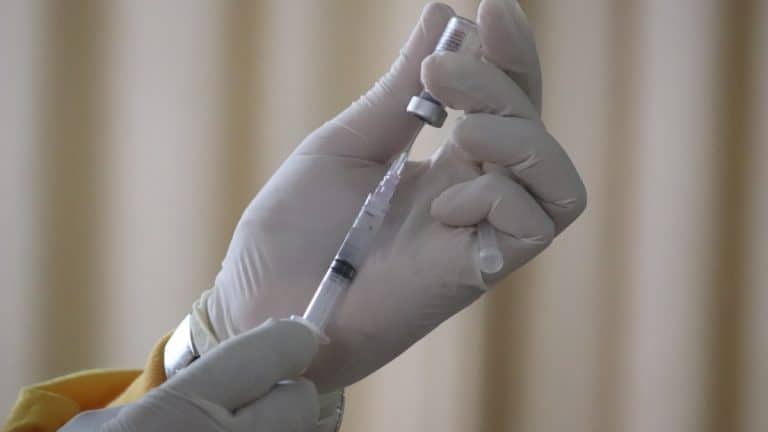
Planning to travel or relocate to Australia? Staying up to date with the right vaccinations is crucial for your health—and your peace of mind. While Australia doesn’t impose entry vaccine requirements (except for yellow fever transit rules), the country’s unique climate, wildlife, and seasonal diseases mean you should review and update your immunisations before departure.
Table of Contents
Book Your Pre-Travel Health Consultation Early
Visit your General practitioner. He will be able to provide recommendations for your vaccinations and check if any need renewing. If it’s necessary to renew certain vaccines before your departure, it’s important to do so as early as possible.
When to See Your Doctor: 6–12 weeks before travel, to allow time for full immunity and multiple-dose schedules if needed.
Some vaccines require multiple injections, which can only be administered at intervals of several months. For example, if you receive a vaccine against hepatitis, you’ll get a first shot, then another one a month later. Finally, the last one will be administered six months later. Only then will the vaccine be fully effective. Moreover, you may need to update a number of vaccines. Therefore, we advise you to start making inquiries at least six months before your departure abroad.
During the consultation, discuss:
- Vaccination history and any missing routine doses
- Your itinerary (urban vs. remote, season, planned activities)
- Duration of stay
- Underlying health conditions (pregnancy, immunocompromise)
Which vaccines do you need to travel to Australia?
Luckily, Australia is a very low risk country. However, if you intend to make a stopover for several days or weeks on your way or return flight. You should do your research first. South America and Central Africa still have yellow fewer risks.
Even if there are no prescribed vaccines for Australia, you should still have all standard vaccinations refreshed. These are vaccines that you usually have received as a child anyway, however, if you haven’t, you should get them before you visit Australia. The country has mainly exterminated these diseases from its people, so don’t bring it back!

Even before considering travel-specific shots, ensure you’re current on all National Immunisation Program (NIP) routine vaccines:
- Diphtheria–Tetanus–Pertussis (with adult booster every 10 years)
- Measles–Mumps–Rubella (MMR)
- Varicella (chickenpox)
- Polio
- Human Papillomavirus (up to age 26 in Australia)
- Pneumococcal (for older adults or chronic conditions)
- Influenza annually—especially if you travel during the Australian flu season (May–October) or Northern Hemisphere winter
In addition, it is recommend to have the following vaccinations:
- Tick-borne encephalitis if you plan to go to Northern Australia or to rural areas.
- Rabies, which occurs in rural areas.
- Hepatitis A and B
These vaccinations in Australia are recommended because backpackers usually travel under very simple conditions. In addition, many backpackers decide to do a trip to Indonesia. Bali, where rabies still present, is only a short flight away from Australia.
Understanding Seasonal Risks
- Wet Season (Nov–Apr) in the Top End: Increased mosquito activity—boost your Japanese Encephalitis and Dengue prevention (though no vaccine for dengue) measures.
- Dry Season (May–Oct): Ideal for travel, but still wear long sleeves and use repellent—saltwater crocodiles and buffalo attract mosquitoes year-round.
Pack a bite-prevention kit:
- EPA-registered insect repellent (e.g., DEET, picaridin)
- Long-sleeved shirts and trousers
- Permethrin-treated clothing
International certificate of vaccination
If you do not have a vaccination certificate or have lost yours, you will receive the international vaccination certificate (Yellow Booklet) at every health office. Your vaccination record will include all previously received vaccinations and their dates. This booklet will allow you to keep up to date with your vaccinations and be sure you are not missing any injections in the future, no matter where you are.
Some countries require proof of vaccination against specific diseases as a condition of entry. When entering certain countries, such as Africa or South America ones, an international vaccination certificate is mandatory. Your certificate should be multilingual.
Frequently asked questions
The vaccines you need depend on your health status, age, and the length of your stay. However, it’s advised to ensure that your routine vaccinations are up-to-date, especially those against measles, rubella, pertussis, chickenpox, influenza, and hepatitis A and B.
Risks vary depending on the region you visit in Australia. For example, if you’re exploring remote or bush areas, it might be recommended to protect yourself against snake bites or other region-specific dangers. It’s advisable to consult a healthcare professional before traveling to remote areas.
Australia is generally a safe country in terms of health, but it’s important to be aware of potential risks, including exposure to intense sun, disease-carrying insects, and swimming conditions. Taking appropriate precautionary measures, such as using sunscreen, insect repellent, and monitoring beach conditions, is recommended.


























